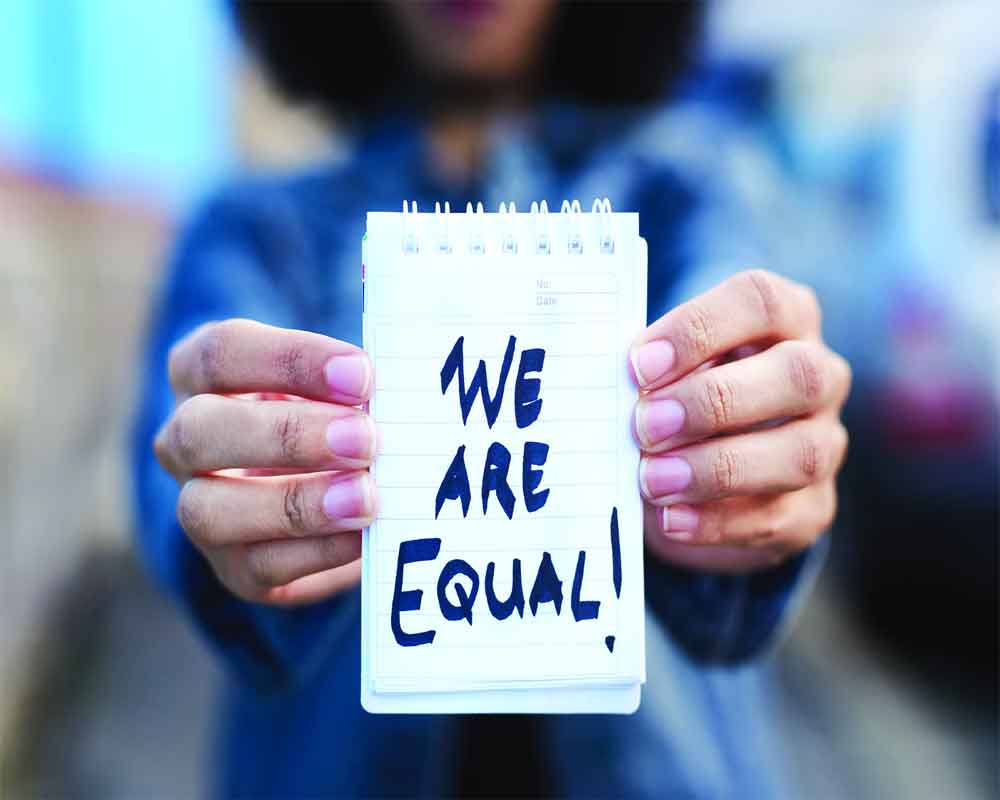Globally, 60 per cent or about 1.12 billion women of reproductive age, live where abortion is broadly legal, while, 40 per cent or 753 million under restrictive laws
On the eve of the International Women’s Day, France enshrined abortion rights in its constitution. While, addressing the French lawmakers, the French Prime Minister said that the country had ‘a moral debt to women’, and the lawmakers ‘a chance to change history’. In the aftermath of the SC decision in the USA, overriding the 1973 verdict in Roe v. Wade, eliminating the constitutional right to an abortion, abortion laws have once again come to spotlight, Earlier, Poland, had effectively banned it, while, Hungary imposed several bureaucratic hurdles for women. In India, the test of ‘foetal viability’ may prove to be a handicap for many women. While, in 2022, Dr. Natalia Kanem, UNFPA, asserted that ‘women’s bodily autonomy is the foundation for gender equality’.
Globally, 60%, or about 1.12 billion women of reproductive age, live where abortion is broadly legal, while, 40% or 753 million under restrictive laws. In today’s world of growing violence, physical, emotional or sexual, against women and girls, especially, by husbands or intimate partners, is becoming a cause for concern. In 2021, one woman was killed in every 11 minutes by a relative, while, a quarter of people worldwide believe, it is justifiable for a man to beat his wife. New forms of violence against women are also emerging online, fuelled by digital tools like deepfakes and by misogynistic influencers, forcing women out of digital spaces (UNDP, 2024).
Even though the world is committed to promoting women’s economic justice and closing gender gaps in the world of work (SDG-10), one in every 10 women is living in extreme poverty, and if the current trends continue by 2030, an estimated 8 per cent of the world’s female population, 342.4 million women and girls - will still be living on less than $2.15 a day, mostly in sub-Saharan Africa. Close to one in four, and will experience moderate or severe food insecurity. An estimated 73.5 per cent of women in wage employment do not have access to social protection. Only 61.4 per cent of prime working age women are in the labour force, compared to 90 per cent of men. More than 2.7 billion women in 69 economies are legally restricted from having the same choice of jobs as men, and 43 economies have no laws on sexual harassment in the workplaces. There is a wide wage disparity as well, with each dollar a man earns in labour, a woman only 51 cents. Women spend about 16.4 billion hours on unpaid care work every day, three times more than men, and at this rate, it would exceed up to 40 per cent of GDP in some countries by 2050. While, the closure in gender gap in labour force participation could give a raise of USD 7 trillion to the global economy and an average 20% higher GDP per capita.
Sadly, halfway through the gender equality goal (SDG-5), not a single indicator for SDG-5( gender equality and empowerment) has been met, or even almost met, with only 15.4 per cent of indicators are ‘on track’, 61.5 per cent at a moderate distance and 23.1 per cent are far or very far off track from 2030 targets. It is estimated to take at least 300 years to end child marriage, 286 years to close gaps in legal protection and remove discriminatory laws, 140 years for women to be represented equally in positions of power and leadership in the workplace, and 47 years to achieve equal representation in national parliaments (UN). There is a need for an additional USD 360 billion per year to achieve gender equality and failure to prioritise it, could not only jeopardise the entire 2030 Agenda for SDGs, but, ‘the very foundation of a fair society, a goal upon which all other goals must stand’(UN DESA).
Now, one of the key challenges is lack of financing. There is a staggering USD 360 billion annual deficit in spending on gender-equality measures (UNWomen). The rising costs of conflicts and fuel and food prices, forced almost 143 countries in undertaking policy measures that undermined their capacity of spending on public services and social protection. A recent study called for alternative economic models shifting towards a green economy and care society for amplifying women’s voices, and achieving feminist climate justice, as the impending climate crisis is likely to push up to 158.3 million more women and girls into poverty.
As the conflicts proliferate across the globe, women face more challenges with increased maternal mortality and morbidity, lack of healthcare, and girls being deprived of school education. The 2024 Women’s Day has rightly focused on investing in women for accelerating all round progress. Now, it is imperative for nations to redouble their efforts in realising the committed goals, to ensure women and girls get access to healthcare, education and capacity building, opportunities for power-sharing and economic participation, and end gender-based violence by breaking the stranglehold of normative behaviour and stereotypes.
(The author is former Director General, Doordarshan & All India Radio, views are personal)


























